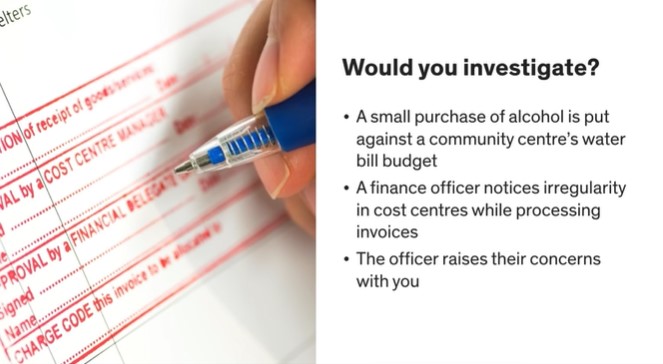Employees may:
- write tender specifications in a way that favours a particular supplier
- frequently use exemptions to avoid competitive procurement
- frequently extend contracts
- accept late or suspicious bids
- not declare connections with a bidder (for example, a family member or friend) as well as actual or perceived conflicts of interest
- accept offers of gifts, benefits or hospitality
- release sensitive information (for example, tender specifications) to a particular bidder.
Suppliers may:
- submit suspicious bids (for example, fake companies, subsidiaries, shell companies or affiliates) to give the appearance of competition
- not declare connections with another bidder (same names, contact details)
- submit bids that vary significantly from others
- offer gifts, benefits or hospitality.


